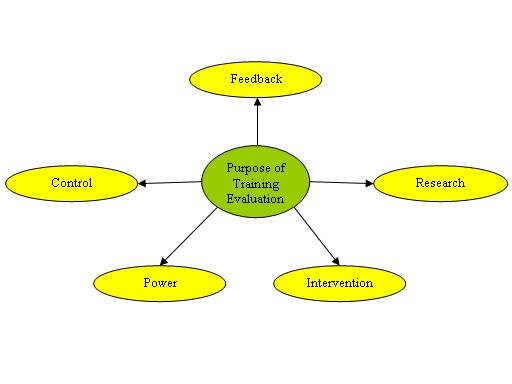Posted in Business Management, Change management, Human Resource, Training & Development
on Apr 25th, 2014 | 0 comments
The process of Training Programme Evaluation
Evaluation of training programme is basically critical examination of appraisal of training programmers. Appraisal of training programme is necessary for improvement and evaluation is a continuous process. “Learning from mistakes” and transforming them into experience and knowledge is the crux of training evaluation.

Areas of Evaluation:
- The participant’s opinion about the programme
- Knowledge, attitude, skills learned during the training sessions
- Behavioral change, if any, as a result of training
- Pay off and benefits that accrue to the organization resulting from the change in behavior of the trainees.
What should the evaluation process consider in the planning stage?
- Attributes of training programme to be evaluated
- Standard for evaluation
- Measuring various aspects of the programme and feedback on the effectiveness of the same
- Implementation of the programme results
- Scrutinizing the changes that need to be done in the training session
- Method of dealing with the change – Who will do it, how will the changes be made, how quickly the changes can be implemented.
Steps in the Evaluation Process:
- Establish acceptable standards and bench marking
- Data collection
- Analysis of data, interpretation and drawing conclusions
- Feedback of the results
1. Establish acceptable standards
Standards may be set in any one of the following methods;
- Setting standards through best practice
- Setting standards through bench marking
2. Data Collection
Data may be collected using any one of the following techniques:
- Questionnaire
- Interview
- Written Test
- Observation
3. Analysis of Data and Interpretation
Raw data should be tabulated – Histogram and frequency distribution yield basic information on the shape of dispersal of data around the mean and standard deviation. Relevant statistical tools must be employed depending upon the purpose of evaluation.
4. Evaluating and Feedback
The steps involved in this process are:
- Design valuation – Includes clear objectives backed up by proper content
- Evaluation of content – Value and usefulness of the programme content may be measured by seeing the reaction of the trainees. An animated discussion in the classroom is a clear indication of the value the content offers. Usefulness may be known by interviewing the trainees and by comparing the performance impact of training with individual job descriptions.
- Evaluating the presenters – By taking feedback from the trainees the training quality of the presenter or lecturer may be evaluated.
- Evaluation of trainees – Three aspects that have to be considered on the part of the trainees are, feeling and opinion, learning and attitudinal changes.
- Evaluating on the job results and productivity changes – A number of factors affect productivity and pre and post measurement of some of the below mentioned aspects shall throw light on the effect of the training programme.
Factors affecting Productivity:
Cost Reduction ,grievance reduction, productivity after versus before training, work quality, quantitative results, accident rates, absenteeism, employee suggestions, supervisory rating, profits, sales volume, turnover rates, customer complaints, worker efficiency, training time required for proficiency, cost per untrained employee, new product development, new customers and public relations.
Behavioral Factors:
Some of the specific behavioral changes listed as follows can be observed before and after the training programme – application of new knowledge, use of new skills, high standards, courtesy, adherence to safety regulations, teamwork, perseverance, honesty, co-operation, quality of work, punctuality, effort, initiative.
Useful Information:
- Sample Training Evaluation Questionnaire
- 5 evaluation methods to evaluate staff training results